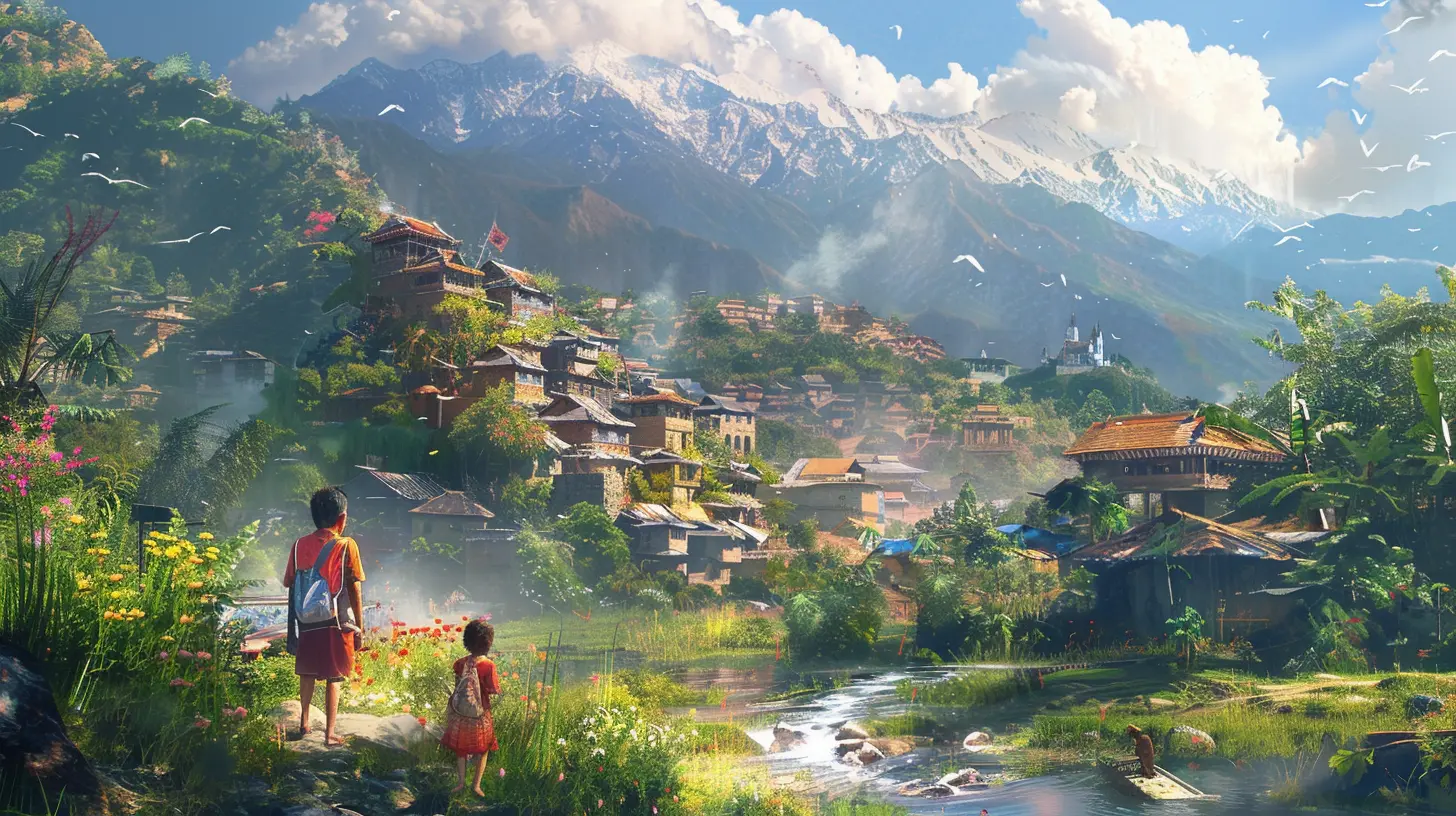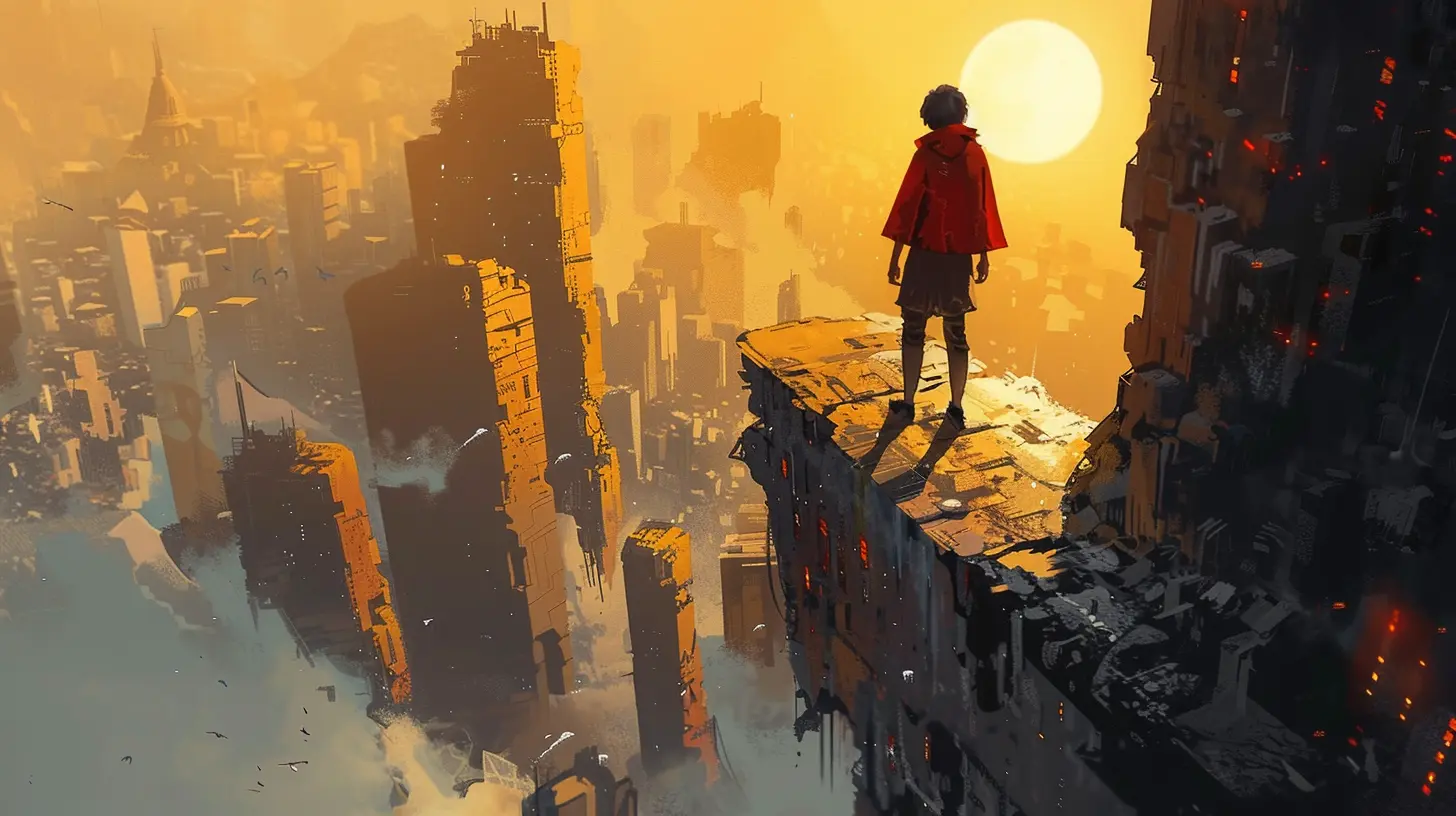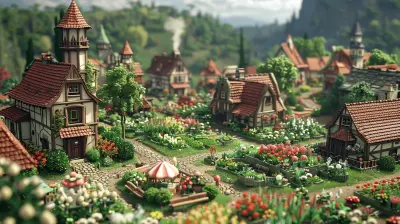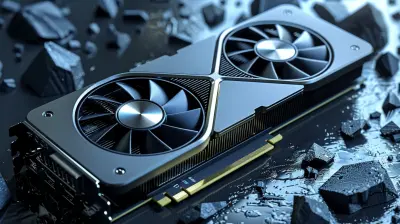Breaking Barriers: Games That Won Awards for Their Social Impact
2 July 2025
Gaming has come a long way. What was once seen simply as entertainment or a way to pass the time has evolved into a powerful tool for storytelling, empathy, and social change. Some games are more than just fun—they challenge norms, shift perspectives, and spark global conversations. These are the games that break barriers.
In this article, we're diving into the heart of gaming—the titles that didn't just entertain us, but left us thinking long after the credits rolled. Games that won big not only because they were well-designed but because they dared to say something meaningful. So, whether you're a lifelong gamer or just someone curious about the power of this medium, buckle up—this one's for you.
Why Games Matter More Than Ever
Let’s be real—video games are no longer just pixelated distractions or mindless shooters. They’re emotional rollercoasters, morality tests, and sometimes, cultural mirrors. They have the power to reflect real-world issues, highlight injustices, and even inspire gamers to take action.Think about it. A game can put you in someone else’s shoes—literally. One minute you're managing a refugee crisis, the next you're navigating mental illness. It's empathy in digital form. And when done right, it hits harder than any headline or news segment ever could.
What Makes a Game Socially Impactful?
Not every game is designed to make a statement, and that’s okay! But the ones that do stand out for a few key reasons:- Narrative Depth: These games tell stories that matter—be it about war, identity, mental health, or inequality.
- Emotional Engagement: They make you laugh, cry, and everything in between.
- Authentic Representation: Diverse characters, cultures, and perspectives that aren’t just added for token points.
- Player Agency: You’re not just along for the ride—you’re making choices that shape the story.
- Call to Action: Many of these games motivate you to reflect, question, and act beyond the screen.
Now let’s look at the games that tick all these boxes—and then some.
1. _That Dragon, Cancer_ – A Game About Grief and Loss
This one’s tough to talk about, but that’s exactly why it matters.Created by Ryan and Amy Green, _That Dragon, Cancer_ is a deeply personal journey through their experience of raising—and ultimately losing—their son Joel to terminal cancer. It's not just a game, it's a tribute. And yes, it’s heartbreaking.
You’re not dodging bullets or solving puzzles here. Instead, you explore the raw, emotional ups and downs of hope, fear, despair, and faith. You hear voice recordings from the family, see stylized scenes from their lives, and feel the helplessness that no parent should ever have to endure.
🏆 _That Dragon, Cancer_ won the Game for Impact Award at The Game Awards 2016, stopping the gaming world in its tracks with its honesty and emotional power.
2. _Papers, Please_ – Bureaucracy, Morality, and Surveillance
Dystopian drama meets paperwork chaos—that's _Papers, Please_ in a nutshell.You play as an immigration officer in the fictional, totalitarian country of Arstotzka. Your job? Deciding who gets in and who doesn’t. Sounds simple, right? Think again.
Every choice has consequences. Let in a terrorist? You’re responsible. Separate a loving family? You’re complicit. Accept bribes to feed your starving child? The guilt is real.
What makes this game genius is how it uses the mundane to provoke moral questions. And it doesn’t offer easy answers.
🎖️ It earned the BAFTA Games Award for Strategy and Simulation and has been praised widely for turning a desk job into an emotional minefield.
3. _Life is Strange_ – Identity, Choices, and Mental Health
You ever wish you could rewind time and do things differently? _Life is Strange_ lets you do just that—except it quickly teaches you that some things can’t be fixed with a time-traveling superpower.You play as Max, a photography student who discovers she can rewind time. But the real magic of the game lies in its exploration of identity, friendship, trauma, and mental health—especially through the lens of its secondary protagonist, Chloe.
It’s heartfelt, raw, and unafraid to go where most titles won’t—even addressing suicide, bullying, and substance abuse. The story choices are heavy, and they stick with you like a haunting lyric.
🏅 It won the Peabody-Facebook Futures of Media Award, making it one of the few games to ever snag an award traditionally given to journalism and documentary storytelling.
4. _Hellblade: Senua’s Sacrifice_ – A Journey Through Psychosis
This game doesn’t just talk about mental illness—it lets you live it.In _Hellblade_, you play as Senua, a Pict warrior battling her way through a mythological Norse underworld. But here’s the twist: her greatest enemy isn’t a monster—it’s her own mind.
Developers at Ninja Theory worked closely with neuroscientists and people with lived experience of psychosis to portray it respectfully and authentically. The result? Voices that whisper, hallucinations that distort reality, and a narrative that never lets you feel stable.
🎮 It won the BAFTA Game Beyond Entertainment Award for its accurate and powerful depiction of psychosis. Oh, and it’s gorgeous to look at.
5. _Celeste_ – Climbing Mountains Both Literal and Emotional
At first glance, _Celeste_ looks like a charming little platformer. But peel back the layers, and you’ll find a profound story about anxiety, self-doubt, and pushing past your limits.You play as Madeline, a young woman climbing a massive mountain. But that mountain? It’s not just rocks and snow—it’s a metaphor for her internal struggles.
Every jump, every fall, every retry—it all mirrors the mental journey of learning to accept yourself, flaws and all. And it does all this without ever feeling preachy.
🏆 _Celeste_ won the Games for Impact Award at The Game Awards and was beloved by both critics and players for seamlessly blending gameplay with story.
6. _Detroit: Become Human_ – Artificial Intelligence and Human Rights
How human is too human?Set in a near-future Detroit, this interactive drama puts you in the shoes of three androids as they navigate civil rights, rebellion, and morality. The game asks some heavy questions about justice, free will, and what it means to be human.
Yes, it’s got its flaws. But what it does nail is putting players face-to-face with social commentary wrapped in sci-fi. Racism, inequality, resistance—it’s all there, thinly veiled behind futuristic tech.
📣 _Detroit: Become Human_ was nominated for multiple impact-focused awards and has been part of ongoing academic discussions about AI ethics and social dynamics.
7. _1979 Revolution: Black Friday_ – Rewriting History Through Gameplay
How many games drop you into the heart of a real-life revolution?Set during the Iranian Revolution, _1979 Revolution: Black Friday_ tells the story of Reza, a photojournalist navigating the chaos, choices, and consequences of a nation in turmoil.
Based on real events and interviews with survivors, this isn’t just another political thriller—it’s a love letter to a country often misunderstood and misrepresented.
🏅 It scooped up awards from Games for Change and was praised for educating players while keeping them emotionally invested.
Why These Games Matter In the Long Run
Here’s the thing: games that make us feel, think, and challenge us emotionally are the ones we remember. They’re not just entertaining us—they're educating us, bridging divides, and building empathy.In a world that often feels divided and overwhelming, these games shine a light on the human experience—warts and all. They remind us that behind every issue is a person, a story, a heartbeat.
And if a game can make us better people—even just a little bit—then that’s a win worth celebrating.
Final Thoughts: Keep Breaking Barriers
So, what’s next? More games like these, hopefully.More developers taking risks, more stories being told from every corner of the world, and more players opening their hearts and minds to what games can teach us. Because here's the truth—breaking barriers doesn't stop with awards. It's a movement. And we're all part of it.
Want to support this shift? Play these games. Talk about them. Share them. And most importantly—feel them.
all images in this post were generated using AI tools
Category:
Game AwardsAuthor:

Leif Coleman
Discussion
rate this article
2 comments
Fable Vaughn
Thank you for highlighting these impactful games! It's inspiring to see how the industry can drive positive social change.
November 7, 2025 at 4:09 AM

Leif Coleman
Thank you for your thoughtful comment! I'm glad you found the article inspiring. It's exciting to see how games can make a difference!
Chloe Benton
This article highlights the powerful role of video games in fostering social change and awareness. By showcasing award-winning titles that address critical issues, it emphasizes how interactive storytelling can promote empathy, challenge stereotypes, and inspire players to engage with their communities.
July 12, 2025 at 3:25 AM

Leif Coleman
Thank you! I'm glad you found the article insightful. Video games truly have the potential to drive meaningful social change through engaging narratives.


